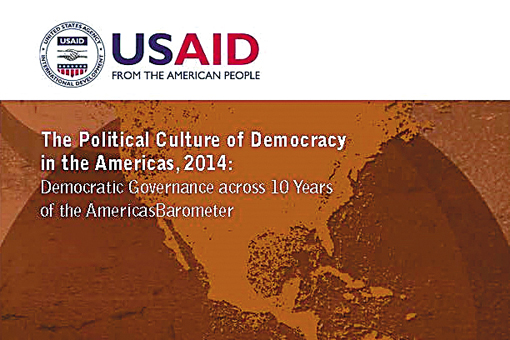Despite record economic growth in Latin America and the Caribbean between 2003 and 2010, the region has not yet succeeded in overcoming external constraints. In Regional Integration: Towards an Inclusive Value Chain Strategy, the UN Economic Commission for Latin America and the Caribbean (ECLAC) details how the rise of geographically defined value chains has made regional and sub-regional integration the preferred approach to achieving sustainable growth, while reducing poverty and inequality. The report recommends that the region diversify production and export structures by creating enlarged, integrated regional markets with shared regulations, and develop joint financial, digital information, transportation, resource management, and energy agendas.
Citizens in the Americas are more concerned with crime and violence today than they were 10 years ago, the Latin American Public Opinion Project (LAPOP) found in its recent report, The Political Culture of Democracy in the Americas, 2014: Democratic Governance across 10 years of the AmericasBarometer. LAPOP draws from a decade of survey data to provide a comparative perspective on citizens’ perceptions of crime and insecurity, as well as their assessment of the economy and corruption and perception of local government and democracy. The findings suggest that, with rising insecurity and distrust in law enforcement and the justice system, attitudes such as low system support and low political tolerance are putting democracy at risk in some countries.
Many countries have responded to globalization by creating integrated regional groups, like the European Union. Such groups have led to industrial and technological interdependence, altering the concept of state sovereignty. FLACSO Costa Rica’s anthology, Política Internacional e Integración Regional Comparada en América Latina, offers a comparative analysis of the successes and failures of attempts at regional integration in Latin America, including Mercosur, UNASUR, CELAC, SICA, and the Pacific Alliance. The report surveys the many political, economic and socio-cultural implications and obstacles of existing integrationist projects. The report recommends CELAC as a model for gradual regional integration.





